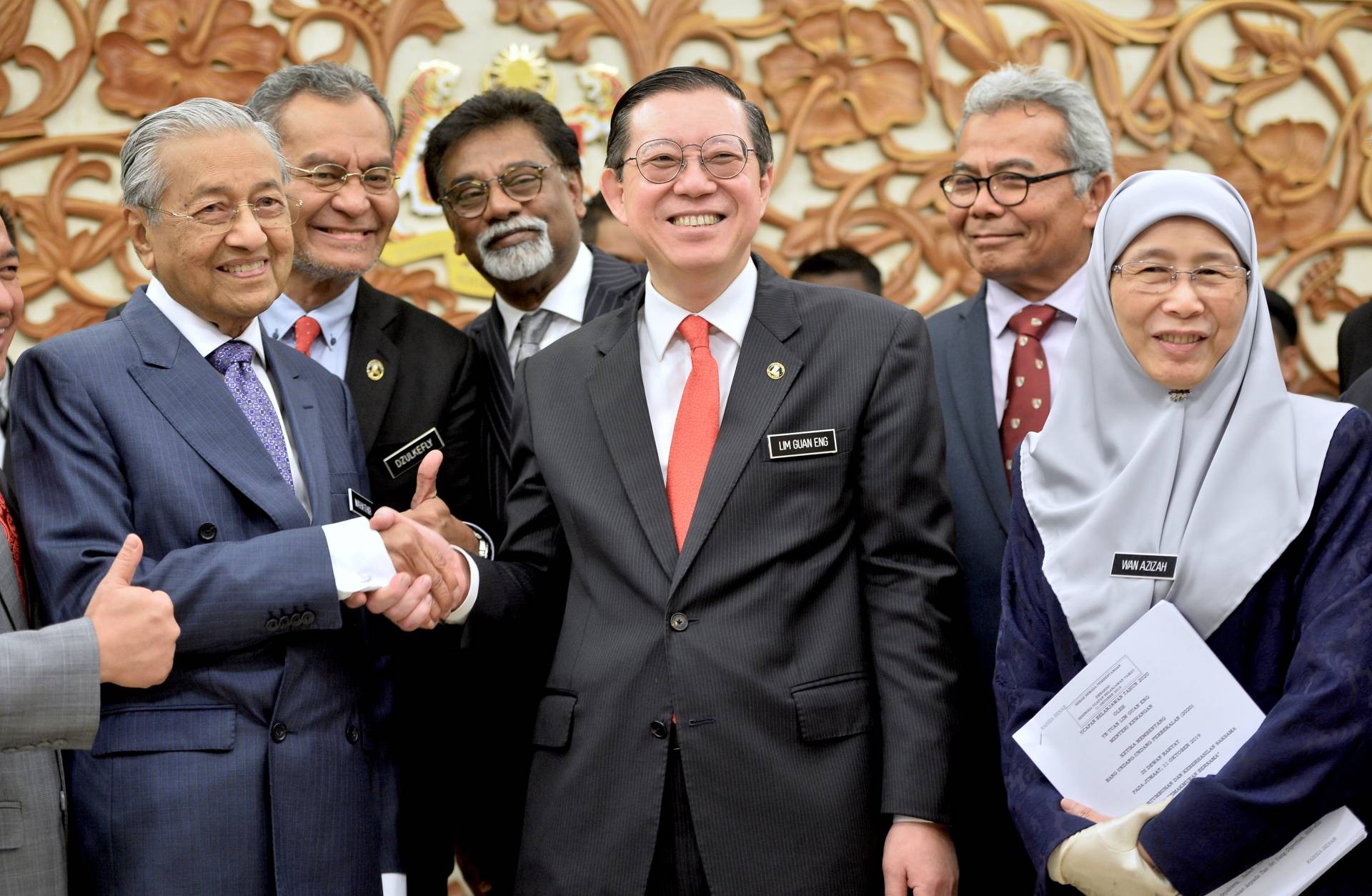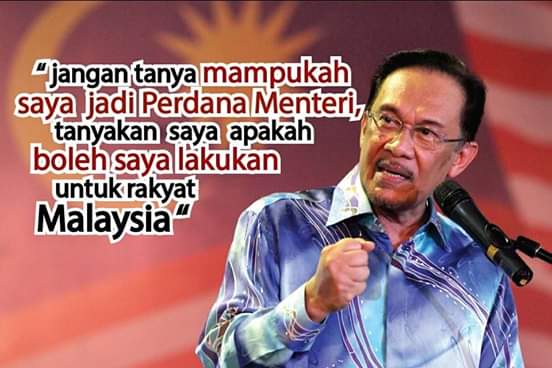
Kerajaan Kelantan tak bagi tau kat rakyat depa duit royalti telah dibayar
sehingga Lebai Tn Ibrahim pun tak tau? Nak nipu ye?
Ni bagi tau, Zaman BN pun Kelantan terima jumlah wang yang sama, Tak Bising pun...Malah boleh puji pulak Najib.. Hari ni sampai nak buat sidang, buat usul kutuk Lim Guan Eng.. Ni nak habaq mai.. urusan Royalti, Ekonomi itu urusan Menteri Ekonomi dan Tun Mahathir.. bukan urusan Lim Guan Eng..
Najib dok curi berbillion kamu dok sokong. Mano pitih nok bayar sekali gus? Baso tak bersyukur.. Jika ikutkan tak perlu bayar Lebai duit Royalti kerana bersubahat dgn penyamun...LGE kata Wang Royalti Minyak. MB Kelantan kata Wang Ehsan. Sebenarnya lebai nak rembat berapa?
Lim Guan Eng ini ibarat Acountant, Apa yang CEO ngan COO buat arahan, Dia kena ikut lah... tak puas hati pi Tanya Tun Mahathir ngan Azmin.. Dalam pentadbiran Kerajaan negeri Lim Guan Eng ni ibarat Pegawai Kewangan Negeri, SUK ngan MB lah buat keputusan perbelanjaan..Kenapa dulu dipanggil wang Ehsan ?, Sebab Bayaran dibuat melalui Majlis Agama Islam dan JPPP.. Hari ni zaman DAP jadi Menteri Kewangan, Dia bagi terus ke Akaun Negeri... Itu pun masih tak puas hati... Memang rasa aku jumlah yg diberikan belum cukup tinggi, Tapi telus lah, bayaran dibuat terus ke Akaun negeri..bukan Agensi Kerajaan Persekutuan mcm Zaman BN..

Satu soalan?
Apakah kerajaan Pas mengiktiraf Wang Ehsan di zaman UMNO? Kalau tak mengiktiraf wang ehsan, maknanya itu wang royalti. Sebab PH tak mengiktiraf wang ehsan.
Tranung dulu pun masa UMNO perintah dipanggil wang ehsan, tapi MB dia bagi statement itu wang royalti.- f/bk
Belanjawan 2020 tidak anak tiri Kelantan dan Terengganu

Bagi kek secret recipe,puas hati pak lebai...
Sebenarnya kita tak perlu nak marah sangat dengan pembangkang yang kritik bahkan hentam kerajaan. Biarlah. Itu memang piawai kerja pembangkang di negara ini.
Apatah lagi pembangkang daripada Pas. Kalau mereka tak buat pantun untuk perli kerajaan, apa yang mereka nak buat? Kalau mereka tak sebut mereka tak setuju dengan kerajaan, apa lagi yang mereka nak sebut?
Sedangkan wang royalti yang sudah dibayar pun, dinafikan pembayarannya. Guru KAFA dan imam yang kerajaan mereka lantik, lalu dibayar elaun oleh kerajaan pusat, mereka masih tak puas hati. Kita nak harap mereka puas hati dalam perkara lain?

Ada seorang individu saja yang pemimpin Pas pernah puas hati iaitu Arul Kanda. Selain dia, sebaik mana pun orang itu, jika bukan orang Pas, sampai kiamat mereka tak akan puas hati.
Mungkin individu kedua dan ketiga yang mereka puas hati ialah Najib dan isterinya. Mungkin, sebab tak pernah nampak mereka kritik bekas PM itu. Peluk adalah.
Nak harap mereka puas hati dengan LGE yang tambah peruntukan untuk hal ehwal Islam sebanyak RM100 juta? Jangankan sebanyak itu, jika LGE tambah RM1b pun mereka tak akan puas hati. Jadi biarkanlah mereka begitu.
Jika nampak mereka marah sangat, belilah kek Secret Recipe. Hadiahkan untuk mereka dan beritahu, ini produk muslim. Agaknya puaslah hati mereka. - Zolkarnain Abidin Al Abyadhi
Bajet Najib dulu tak masuk bayaq hutang 1MDB,cincang dokumen ada...
Dia tak Bagi Tau pun kita Kerajaan tolong Bayar interest jer Berbillion.. sampai 7 Billion.. Dia ambik duit mana kalau tak sebut dalam Belanjawan.. Itulah Rahsianya Duit Refund GST lebuh entah kemana.. Depa gali lubang,Tutup lubang..Tu baru 1MDB..Zaman PH, Bayaran Khidmat Hutang , Sampaikan Kos faedah hutang pun dia bentang dalam Belanjawan..
Orang kata kenapa zaman PH hutang bertambah..? Kenapa PH kata Hutang 1 Trilion.. Itu tandanya Kerajaan telus..dia crystalize Hutang yg dulu tersorok bawah karpet rumah rosmah..Yang hutang dia kata Hutang.. Yang dulu hangpa tak nampak Sebagai Hutang, hari ni kerajaan PH bagi nampak.. Tu nama dia bukan buat Hutang, Tu nama Dia Pengstrukturan dan penyelesaian Hutang.. - Ipohmali

A Budget unlike its predecessors...
The recently unveiled Budget 2020 is very different from past Budgets. Before the last Budget was tabled in the Parliament last year, the entire nation had been psychologically prepared for a painful Budget. This year's Budget is more expansionary in nature, as exemplified by the re-initiation of the Bandar Malaysia project.
The global economy is heading to a slowdown this year, with nations slashing interest rates, cutting taxes and aggressively launching development projects to kickstart the economy. To firm up the national economy and to ward off the impact from unfavourable external factors, it is imperative for the government to adopt the necessary measures. While the 2019 Budget was essentially more defensive, the 2020 Budget has taken a more proactive stance.
The Treasury has run into deficits for many years and it is difficult for the government to fork out large sums of money to revitalise the economy. Operating expenditure has already taken up more than four-fifths of the budgetary allocations, with very little left for development. This instantly reminds us of the severely bloated civil service. Without addressing this long-standing issue, the country's future development will be restricted. Fortunately, the government has proposed a higher development allocation for the coming year.
Young people, men or women, get generous offers from the government: additional incentives for unemployed people managing to find new jobs as well as expecting mothers returning to the job market, besides extended maternity leave. In the meantime, the new government is also helping to lighten the young people's pressure, which is consistent with the shared prosperity vision proposed by the prime minister.
Following the introduction of younger voting age, taking good care of young people has become a boon to the PH government, as this group of new voters will constitute a crucial factor that will decide whether the coalition will remain in power come the next general elections.
The Budget has also touched on remarkably improved Internet speed and reduced pricing, which have become a reality now. Today, Malaysians can look forward to high-speed broadband packages for under RM100 a month. Thanks to reduced tariffs, more people can now gain access to high-speed Internet packages. Malaysia's ranking in SpeedTest Global Index has jumped from 36th to 26th, a promising phenomenon for the country's advancement towards the digital age.
Compared to the national car project in the previous Budget, at least the government's emphasis on digital technology projects this year holds much better potentials. We cannot deny that the manufacturing sector is still very important to the country's economy, it is high technology sector that holds the key to our future development. Through Industry 4.0, the manufacturing industry can be transformed with technology, effectively cutting down its reliance on cheap foreign labour while creating high-tech job opportunities for our younger generation.
Real estate has always been a tacky issue for many Malaysians. On the one hand, we do have a huge unsold stock; on the other hand, housing prices are beyond reach for many. Where the former is concerned, the government has proposed in the new Budget to bring down the pricing threshold for foreign acquisition from RM1 million to RM600,000, applicable only to existing unsold condominium units. As for the latter, the government will introduce the “rent first, buy later” scheme to make it easier for Malaysians to buy houses.

The above are only short-term measures meant to alleviate the problem. The problem of sluggish property sale will remain if newly built houses are priced beyond the affordability of average potential buyers. The long-term plan must be one that fundamentally addresses the issue of supply-demand imbalance.
SMEs will receive the much needed tax relief, while multinational corporations investing in Malaysia can look forward to lucrative incentives provided by the government. Foreign investments have picked up steam since the onset of Sino-American trade war, and the government is banking on this unique opportunity to woo investments from Fortune 500 companies. The budgetary allocation for this area is as high as RM1 billion.
Monetary incentives are not the only pull factor for international investors. In late 1990s, the government planned to develop Cyberjaya into a high-tech enclave similar to Silicon Valley of the United States. Many incentives were set aside to lure high tech enterprises to invest in this country. However, this project is still very far from the initial target, with some western media calling it Malaysia's failed Silicon Valley project.
New plans need to take cue from past experiences in order to re-position Malaysia as a high-tech hub while shedding its negative past image in creating a truly irresistible business environment for global companies. I personally feel that Budget 2020 is different from the previous ones in that there is a determined shift from conventional business to tech-heavy sector, from focusing on development to sharing of prosperity, and from austerity-driven to expansionary.
From the perspective of race, we have yet to see the arrival of New Malaysia, but hopefully this unlike-others budget will at least breathe new life into the country's economy. - Alex Chong






